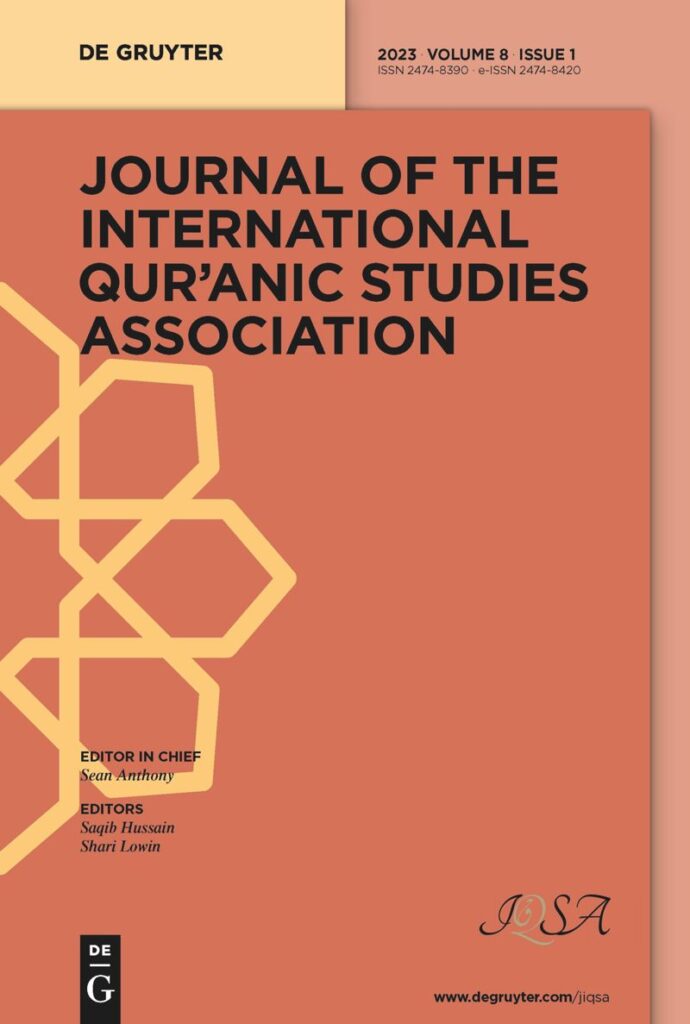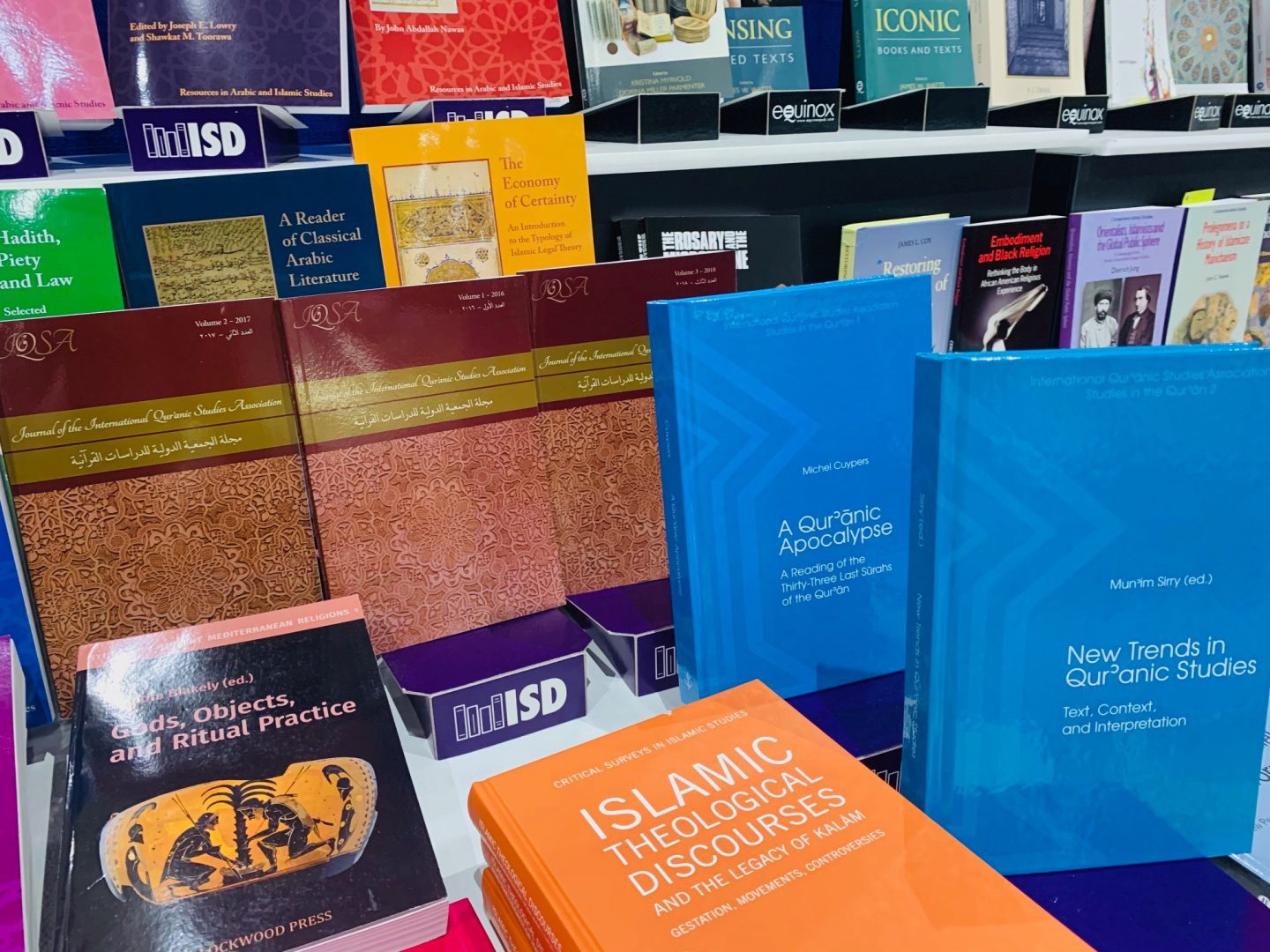About JIQSA/CfP
The Journal of the International Qur’anic Studies Association is a peer-reviewed annual journal. It cultivates Qur’anic Studies as a growing field with a distinctive identity and focus, while acknowledging relevant linkages to the study of the Bible as well as the Islamic tradition. The journal facilitates crucial conversations about the state of the field in Qur’anic Studies and connects diverse scholarly communities from around the world. It includes the Review of Qur’anic Research, which offers scholarly book reviews of recent publications in the field.
JIQSA is an annual collection of original, quality research articles. Methodologies of particular interest to the journal include historical-critical, contextual-comparative, and literary approaches to the Qur’an. JIQSA especially welcomes articles that explore the Qur’an’s origins in the religious, cultural, social, and political contexts of Late Antiquity; its connections to various literary precursors, especially the scriptural and parascriptural traditions of older religious communities; the historical reception of the Qur’an in the west; the hermeneutics and methodology of qur’anic exegesis and translation (both traditional and modern); the transmission and evolution of the textus receptus; Qur’an manuscripts and material culture; and the application of various literary and philological modes of investigation into Qur’anic style, compositional structure, and rhetoric.
Articles to be considered for publication may reflect a variety of disciplinary perspectives, but should be:
- located in and engaged with the relevant scholarly literature, building on existing knowledge;
- conscious of authorial perspective and positionality, and explicit about aims, theoretical posture, and methodology;
- reflective about their impact on larger issues and debates in the academic field of Qur’anic Studies and in broader public discourses around the Qur’an and Islam.
Submissions should be uploaded electronically at https://www.degruyter.com/journal/key/jiqsa/html.

Editors
Sean Anthony, Editor-in-Chief, The Ohio State University
Saqib Hussain, Associate Editor, Loyola Marymount University
Mehdi Azaiez, RQR Editor, Université Catholique de Louvain
Editorial Board
Ahmad Al-Jallad, The Ohio State University, USA
Carol Bakhos, University of California, Los Angeles, USA
Karen Bauer, The Institute of Ismaili Studies, UK
Majid Daneshgar, University of Cambridge, UK
Vanessa De Gifis, Wayne State University, USA
Reuven Firestone, Hebrew Union College/University of Southern California, Los Angeles, USA
Feras Hamza, University of Wollongong, Dubai
Marianna Klar, University of Oxford, UK
Joseph Lowry, University of Pennsylvania, USA
Shady Nasser, Harvard University, USA
Johanna Pink, Albert-Ludwigs-Universität Freiburg, Germany
David Powers, Cornell University, USA
Michael E. Pregill, Chapman University, USA
Gabriel Said Reynolds, University of Notre Dame, USA
Nicolai Sinai, University of Oxford, UK
Shawkat Toorawa, Yale University, USA
Copy Editors
Ryann Craig, Catholic University of America, USA (vol. 1)
Adam Zeidan, Catholic University of America, USA (vol. 2)
Saqib Hussain, University of Oxford (vols. 3+)
Subscription Information
Subscriptions
At this time institutions are strongly encouraged to subscribe for print or online access at https://www.degruyter.com/journal/key/jiqsa/html.
ISSN 2474-8390 (Print)
2474-8420 (Online)
The Journal of the International Qur’anic Studies Association (JIQSA) is a peer-reviewed annual journal devoted to the scholarly study of the Qur’an. Our goals are to:
- publish scholarship of high technical quality on the Qur’an, discussing its historical context; its relationship to other religious text traditions; and its literary, material, and cultural reception;
- cultivate Qur’anic Studies as a growing field with a distinctive identity and focus, while acknowledging relevant linkages to the study of the Bible as well as the Islamic tradition, including tafsīr;
- facilitate crucial conversations about the state of the field in Qur’anic Studies and the future of the discipline;
- connect diverse scholarly communities from around the world on issues of common concern in the study of the Qur’an.
